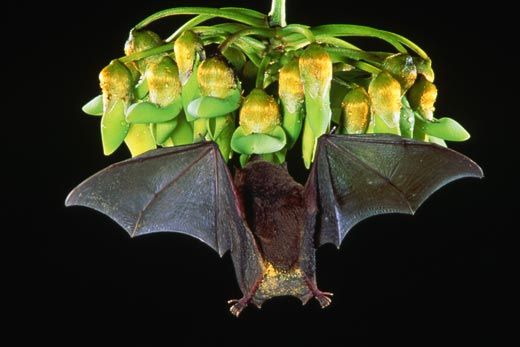Making History: Bats to the Rescue
Scientists discover insect-eating bats may help sustain forests
/https://tf-cmsv2-smithsonianmag-media.s3.amazonaws.com/filer/makinghistory_oct08_631.jpg)
Bats are a big help to plants because they devour leaf-munching insects, according to researchers at the Smithsonian Tropical Research Institute in Panama. The scientists conducted their investigation by covering plants with plastic and wire-mesh structures that let insects in but kept large bug-eating predators out. The research team then compared three groups: plants that were covered during the day (when birds are looking for food); plants that were covered at night (when bats are awake and hungry); and a control group of uncovered plants (open to all comers). The result? Plants sealed off from the bats had more leaf damage and were more infested with insects than the other two groups. While previous studies have extensively documented the beneficial relationship between birds and plants, scientists "have completely overlooked the important ecological role of insect-eating bats," says Margareta Kalka, the study's lead author. The Smithsonian research reveals that bats might do more to help sustain forests than we previously thought, says Kalka.
